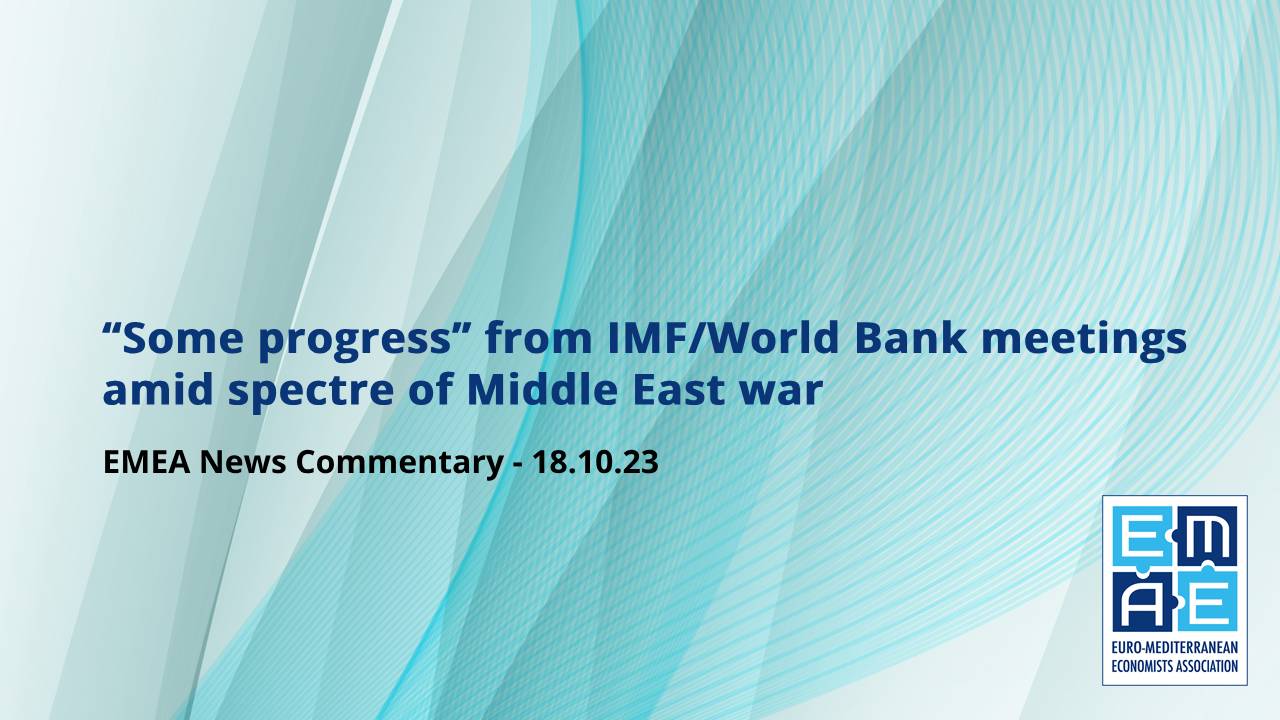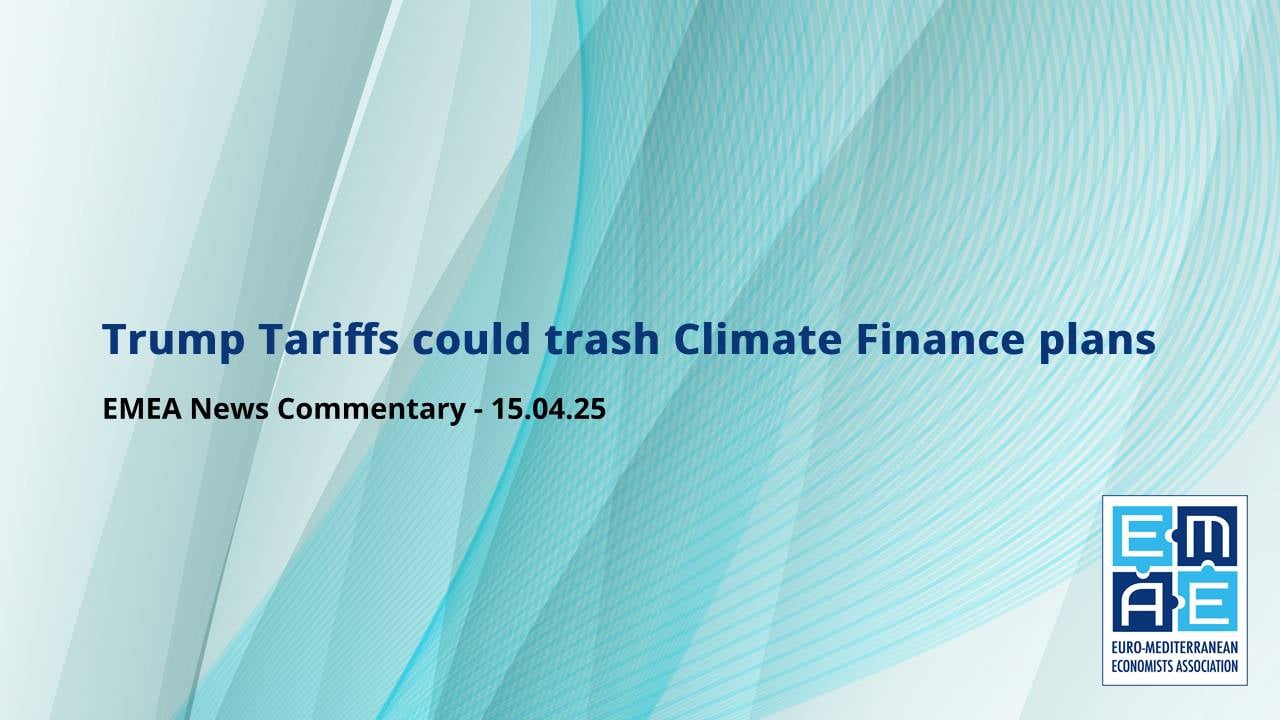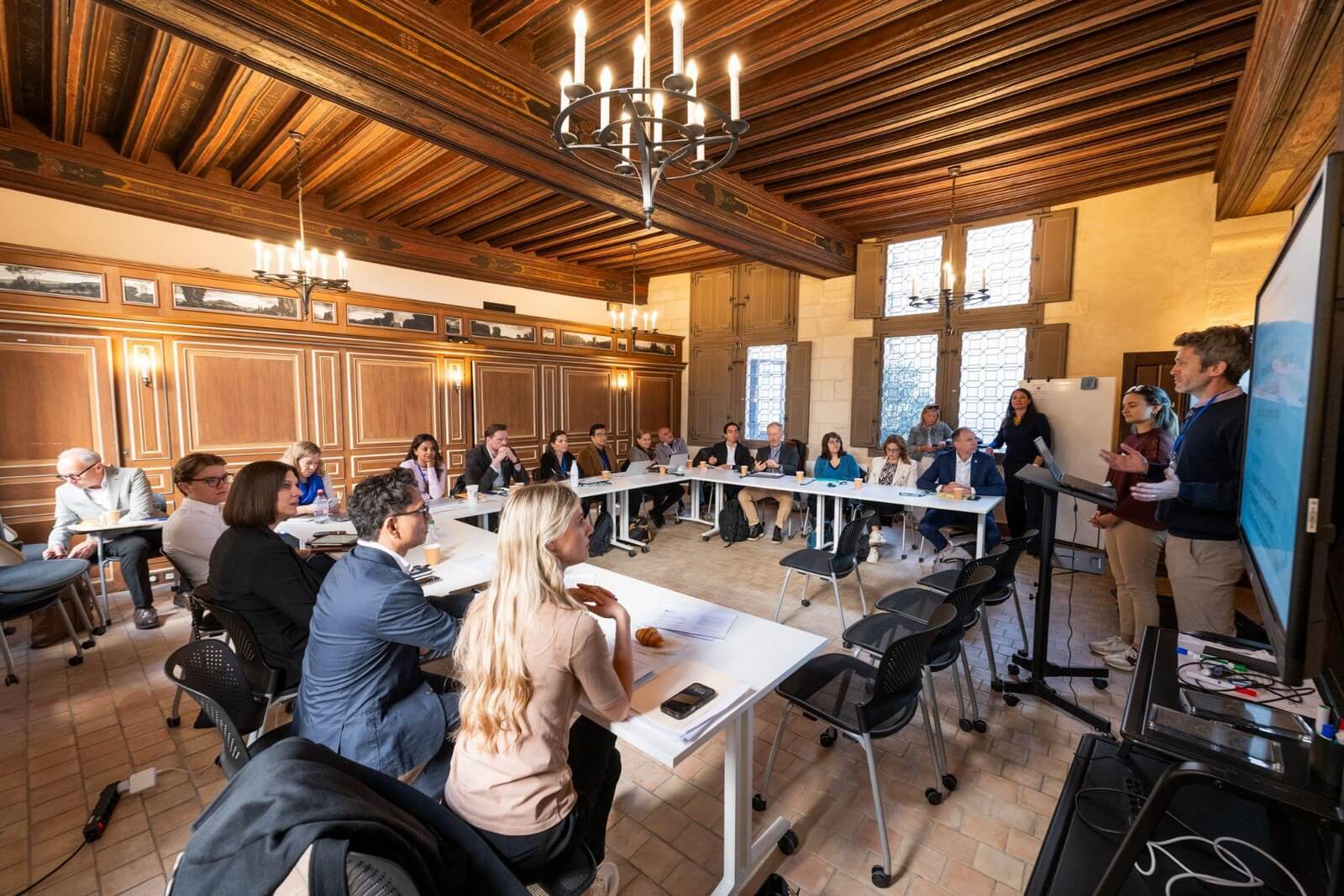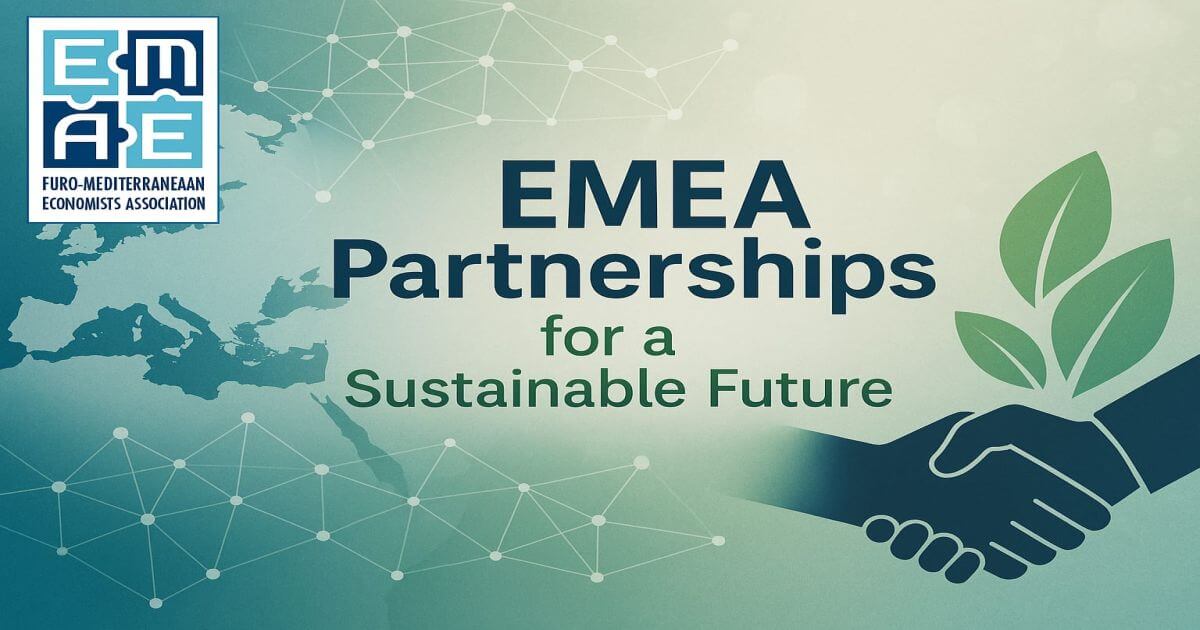With the mounting threat of economic turmoil from the Israeli-Gaza conflict, the International Monetary Fund (IMF) and World Bank (WB) concluded their annual meetings in Marrakech, with some progress being made on extending their lending resources, according to Reuters.
In anticipation of imminent war in the Middle East, IMF member states have agreed to increase quota contributions by the end of 2023, to provide additional financial assistance – but not a lot else.
According to Reuters “they fell short of agreeing to a U.S. plan that would delay shareholding changes that would cede more influence to China.”
Meanwhile, as part of its latest mission to tackle climate change and create a “world free of poverty on a liveable planet”, The World Bank’s governing body authorised the use of $100 billion in new lending over the next decade. This will be achieved by introducing “debt-like hybrid capital and a new portfolio guarantee platform.”
But there was no consensus on the risks surrounding the Middle East conflict, with IMF and World Bank leaders being “slow to respond” over higher energy prices, potential trade impacts and a new refugee crisis, according to Reuters.
G20 finance leaders and the steering committees of both institutions also failed to issue joint communiques or even mention the Middle East conflict.
Even before this, it was being reported that the Ukraine war, growing trade protectionism and tensions between the United States and China would all make consensus-building tougher.
Advanced economy debt levels
At the same time, a recurrent theme throughout the meetings was the heavy debt burdens being carried by advanced economies, like the US, China and Italy. This coincided with the rest of the world facing the challenges of higher policy rates, a strong dollar and geopolitical uncertainties.
With US bond yields heading higher and investors growing nervous over holding longer term debt, the Italian central bank governor, Ignazio Visco, said it appeared markets were “reevaluating the term premium”.
More starkly, JPMorgan chair of global research, Joyce Chang, spoke of the similarities between today and the long period of economic calm prior to the 2008/9 financial crisis. “The bond vigilantes are back. The Great Moderation is over,” she remarked.
Vitor Gaspar, head of the IMF’s fiscal division, warned of the knock-on effect this could have on combatting climate change. He said current subsidies-based policies had failed to deliver net zero emissions. If they were scaled up, this “would explode public debt without carbon pricing to generate revenue.”
Others debt restructuring news that emerged from the talks included:
-
Kenya’s plan to avoid slipping into debt distress by buying back a quarter of its $2 billion international bond, due to mature in June 2024.
-
Zambia agreeing a debt rework memorandum of understanding with creditors, including China and France.
-
Sri Lanka on the verge of reaching an agreement with the Export-Import Bank of China to cover about $4.2 billion of debt.
Although there had been much talk prior to Marrakech about revamping the IMF and WB, to better reflect the emergence of economies like China and Brazil, it was feared that “actions taken at the meetings may delay them.”
Overlapping crises
In the build-up to the Morocco talks, with a Middle East war threatening “to upend a world economy already reeling from several years of overlapping crises”, the IMF had warned of a slowdown in global economic recovery, said The New York Times.
It was feared the escalating conflict could fuel further regional unrest and add more pressure to a global economy still coming to grips with the Ukraine war, fall-out from the pandemic and mounting inflation.
Amid concerns over the violence overshadowing the key IMF-WB talks on sovereign debt, lacklustre growth prospects and development setbacks associated with the pandemic, the World Bank Chief Economist, Indermit Gill, told Reuters: “It’s always the low-income countries that you take attention away from, and there are 750 million people who live there.”
The latest conflict had “cast a cloud” over the Marrakech gathering, with World Bank President, Ajay Banga, stating that economies were in a delicate state. “Having war is really not helpful for central banks who are finally trying to find their way to a soft landing,” he said.
Whilst he believed that there would be less impact on the world economy from the current unrest in the Middle East compared to the Russian invasion of Ukraine, Mr Banga said any widening of the Israel/Hamas conflict would bring about “a crisis of unimaginable proportion.”
Uncertain economic outlook surrounding energy prices
As a fall-out from these latest developments, it was also being reported that a spike in oil prices could prompt central banks to raise interest rates.
Lucrezia Reichlin, a professor at the London Business School and a former director general of research at the European Central Bank, said: “The main question is what’s going to happen to energy prices.”
But the IMF chief economist, Pierre-Olivier Gourinchas, said it was too early to assess whether the recent jump in oil prices would be sustained.
In its latest World Economic Outlook, signed off before the Israel-Hamas conflict began, the IMF maintained a fragile global growth outlook for 2023 of 3.0%, falling to 2.9% next year.
Global inflation was forecast to drop from 6.9% this year, to a still-high 5.8% next year, with central bankers indicating an end to interest rate hikes if events allowed.
High interest rates would put some borrowers in more precarious positions, the IMF warned, with around 5% of banks globally said to be vulnerable to stress, if higher rates continued for any length of time. Meanwhile, the IMF have reckoned that a further 30% of banks – including some of the world’s largest – would be vulnerable if the global economy entered a prolonged period of low growth and high inflation.
“We see a global economy that is limping along and it’s not quite sprinting yet,” Mr. Gourinchas said, warning that the medium-term picture was darker, partly due to the likelihood of more climate change-induced natural disasters.
Toll on European and Sub-Saharan economies
According to the New York Times, Europe’s economy was particularly susceptible to growing global tensions. Since the start of the Ukraine war, European governments had “frantically scrambled to free themselves from an over-dependence on Russian natural gas.”
This had been largely overcome by turning to Middle Eastern suppliers. But questions were now being asked as to whether the EU’s support for Israel might be opposed by countries like Algeria, who had recently increased exports of natural gas to Italy. Algeria has been critical of the Israeli response in Gaza.
According to the IMF, even before this latest Middle East conflict, the energy transition had taken a toll on European economies, with growth across the eurozone slowing to just 0.7% this year.
Sub-Saharan Africa (SSA) was also affected, with growth projected to shrink by 3.3% in 2023, although this was expected to improve next year. Nevertheless “staggering debt” still loomed over many of the region’s nations, amounting to 60 per cent of total output across SSA, double that of a decade ago.
Amid uncertainty over the implications on the wider world of a slowdown in the Chinese economy, the IMF said that the next generation of sovereign debt crises would be played out “in a world that is coming to terms with a reappraisal of global supply chains in addition to growing geopolitical rivalries.”
Additionally, “within the next decade, trillions of dollars in new financing will be needed to mitigate devastating climate change in developing countries,” the Fund warned. More talks are planned in the next couple of months.
In a gloomy summary of what transpired in Marrakech, Kate Donald, Head of Oxfam International’s Washington DC Office, said the week’s main theme had been of “G7 countries papering over the cracks of shattered promises.
“Despite the wringing of hands about the billions of dollars needed to tackle poverty and climate breakdown, there has been no sign of new money,” she reflected.
Key takeaways from IMF/World Bank meetings in Morocco | Reuters
Fragile Global Economy Faces New Crisis in Israel-Gaza War – The New York Times (nytimes.com)
World Bank says it hopes for a rapid de-escalation of the conflict in Israel, Gaza | Reuters
US STOCKS-Wall Street turns positive as investors digest news of Mideast conflict (devdiscourse.com)





